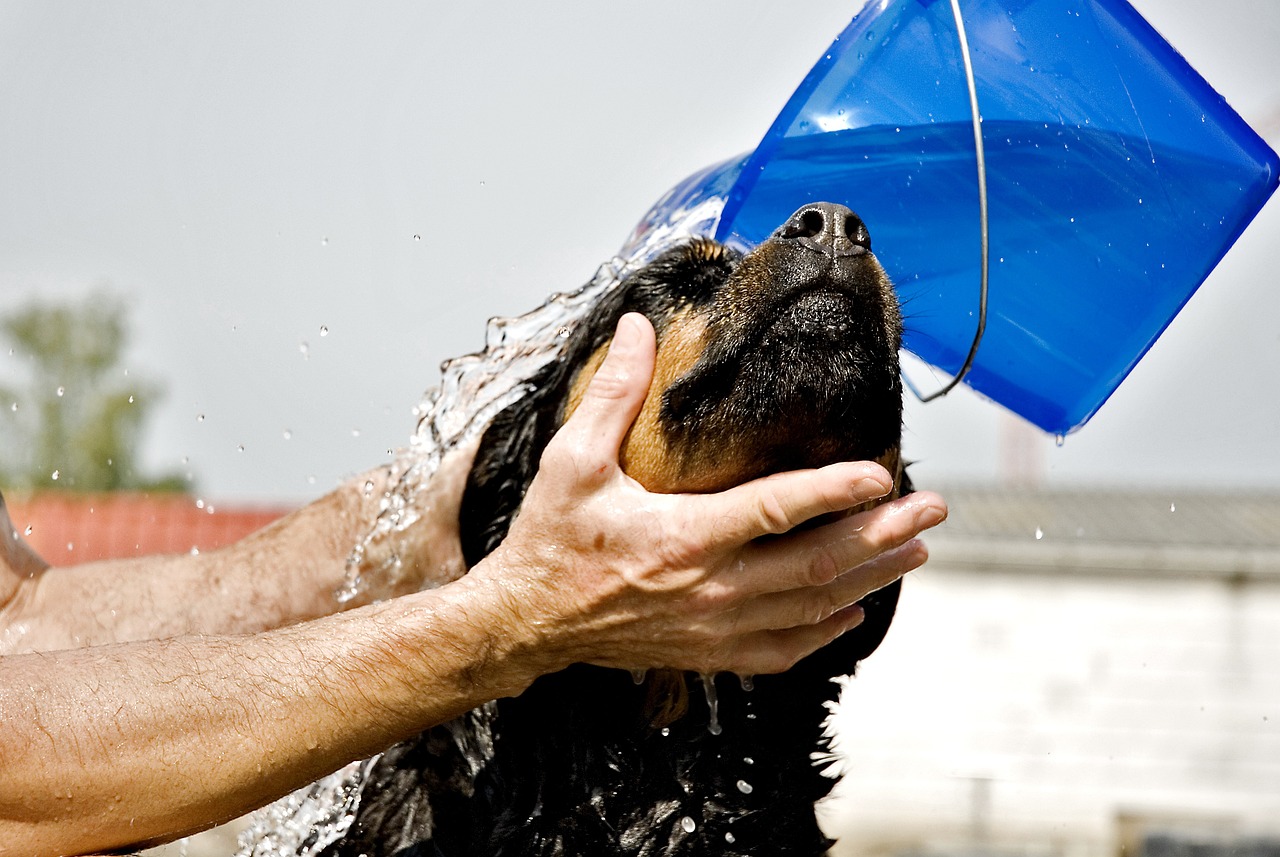
Animal-Friendly Cleaning Products: Eco-Friendly and Ethical Solutions
As awareness around the impact of our choices on animals and the environment grows, more and more people are looking for alternatives to traditional products that align with their ethical values. One area where many consumers are making a change is in household cleaning products. Conventional cleaning supplies are often filled with harmful chemicals and tested on animals, but a variety of animal-friendly cleaning products offer eco-friendly and ethical solutions. In this article, we’ll explore why choosing cruelty-free and eco-conscious cleaners matters, and we’ll highlight some of the top options on the market.
1. Why Choose Animal-Friendly Cleaning Products?
Many conventional cleaning products contain ingredients that are toxic to the environment and have been tested on animals in ways that cause harm and suffering. Animal-friendly cleaning products, on the other hand, are designed to minimize both environmental and ethical concerns. Here’s why making the switch is a smart move for your household:
1.1. Cruelty-Free Practices
Cruelty-free products are made without testing on animals, which means you’re not supporting practices that subject animals to painful experiments. These experiments often involve testing chemicals on animals’ skin or eyes, leading to injuries or death. By choosing cruelty-free products, you’re supporting companies that invest in alternative testing methods, such as in-vitro tests or using existing data from safe ingredients.
1.2. Eco-Friendly Ingredients
Animal-friendly cleaning products typically go hand in hand with eco-conscious formulations. These products use biodegradable, non-toxic ingredients that are safer for the environment. Conventional cleaning products, on the other hand, can contain harmful chemicals like phosphates, bleach, and ammonia, which can contaminate water systems, harm wildlife, and contribute to air pollution.
1.3. Better for Your Health
Many mainstream cleaning products contain harsh chemicals that can irritate your skin, eyes, and respiratory system. Animal-friendly alternatives often use plant-based ingredients and essential oils that are gentler on your body, reducing the risk of allergic reactions or long-term health issues.
1.4. Supporting Ethical Brands
When you purchase animal-friendly products, you are supporting companies that prioritize ethical practices. These brands often engage in sustainable sourcing, fair trade, and responsible packaging, meaning your purchase supports not only animals but also fair labor practices and environmental conservation.
2. Key Ingredients to Avoid in Conventional Cleaning Products
Understanding what to avoid in traditional cleaners can help you make informed decisions. Many animal-friendly products will proudly state what harmful ingredients they do not contain. Here are a few you should watch out for:
2.1. Phthalates
These chemicals are often used to create fragrances in cleaning products, but they are known endocrine disruptors. Phthalates can be harmful to both human health and wildlife when washed down the drain.
2.2. Ammonia
Ammonia is commonly used in glass cleaners, but it is highly irritating to the skin and lungs. Over time, exposure can lead to respiratory issues, and it’s toxic to aquatic life when it enters the water supply.
2.3. Triclosan
Triclosan is an antibacterial agent often found in cleaning products, but it can contribute to the development of antibiotic-resistant bacteria and disrupt aquatic ecosystems.
2.4. Chlorine
Bleach is a common disinfectant, but its fumes are harmful to human lungs and the environment. It’s also highly corrosive and can cause skin burns.
2.5. Synthetic Fragrances and Dyes
Artificial fragrances and dyes add nothing to the cleaning power of a product but often contain hidden chemicals that are linked to allergies, hormone disruption, and environmental harm.
3. Top Animal-Friendly Cleaning Brands
The good news is that there are many fantastic brands offering cruelty-free, eco-friendly cleaning products. Here are some of the top names to consider:
3.1. Seventh Generation
Seventh Generation is one of the most widely known eco-friendly brands. Their products are made with plant-based ingredients and are free from harsh chemicals like phthalates, ammonia, and chlorine. They also avoid animal testing and offer a wide range of cleaners, from laundry detergent to surface sprays.
3.2. Mrs. Meyer’s Clean Day
This brand offers cruelty-free cleaning solutions with a focus on using aromatherapy to create pleasant-smelling cleaners. Mrs. Meyer’s products are made with essential oils and biodegradable ingredients, and they have a wide selection of household products that are safe for people, pets, and the planet.
3.3. Method
Method products are vegan, cruelty-free, and made with non-toxic ingredients that are safe for your family and the environment. The company also emphasizes sustainable packaging, with bottles made from recycled plastic.
3.4. Ecover
Ecover offers a range of plant-based, biodegradable cleaners that are both effective and safe for the environment. The brand is also dedicated to sustainability, producing all their products in a zero-waste factory and avoiding animal testing.
3.5. Dr. Bronner’s
Known for its versatile castile soap, Dr. Bronner’s offers an array of vegan and cruelty-free cleaning products. Their concentrated soaps can be used for everything from dishwashing to mopping floors, making them a versatile, eco-friendly option.
4. DIY Animal-Friendly Cleaning Solutions
If you want to take your eco-friendly cleaning game one step further, consider making your own cleaning products at home. DIY cleaners are affordable, effective, and customizable. Here are a few simple recipes to get you started:
4.1. All-Purpose Cleaner
- Ingredients:
- 1 cup white vinegar
- 1 cup water
- 10-15 drops of essential oil (like lemon, tea tree, or lavender)
- Instructions: Combine ingredients in a spray bottle and shake well. Use on countertops, tables, and other surfaces.
4.2. Glass Cleaner
- Ingredients:
- 2 cups water
- 1/4 cup white vinegar
- 1/4 cup rubbing alcohol
- Instructions: Mix the ingredients in a spray bottle. Spray onto glass surfaces and wipe clean with a lint-free cloth.
4.3. Bathroom Cleaner
- Ingredients:
- 1/2 cup baking soda
- 1/4 cup liquid castile soap
- 10 drops tea tree essential oil
- Instructions: Combine ingredients to make a paste. Apply to tiles, tubs, and sinks, and scrub with a sponge.
5. How to Make the Transition to Animal-Friendly Products
Switching to animal-friendly cleaning products doesn’t have to happen overnight. Here are some tips to help you make the transition smoothly:
5.1. Start Small
Begin by replacing one or two products at a time. For example, swap out your dish soap or surface cleaner first. This gradual approach makes the transition more manageable and allows you to experiment with different brands.
5.2. Check Certifications
Look for recognized cruelty-free certifications, such as the Leaping Bunny or PETA’s Beauty Without Bunnies. These labels ensure that the product hasn’t been tested on animals at any stage of production.
5.3. Read Ingredient Labels
Pay attention to the ingredients in the products you buy. Even if a product is labeled as “natural,” it could still contain harmful chemicals. Familiarize yourself with the names of ingredients to avoid, like phthalates, parabens, and sulfates.
5.4. Shop from Ethical Retailers
Many retailers, both online and in-store, now offer dedicated sections for eco-friendly and cruelty-free products. Websites like Thrive Market and The Honest Company make it easy to find ethical products that fit your needs.
6. Final Thoughts: Embrace Ethical Cleaning
Switching to animal-friendly cleaning products is a powerful way to support ethical brands and protect both animals and the environment. With a growing number of options available, from well-established companies to DIY solutions, it's easier than ever to find cleaners that are safe, effective, and aligned with your values. By choosing cruelty-free and eco-friendly cleaning products, you’re taking a stand for a more sustainable and compassionate future.
Whether you’re just beginning your journey into ethical consumption or looking to fully transition your household products, making small changes today can have a big impact. By understanding what to look for and supporting brands that prioritize animal welfare, you can keep your home clean while staying true to your ethical values.
